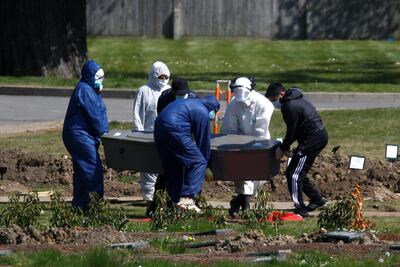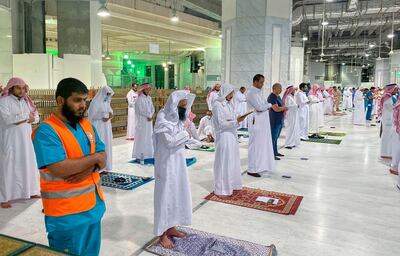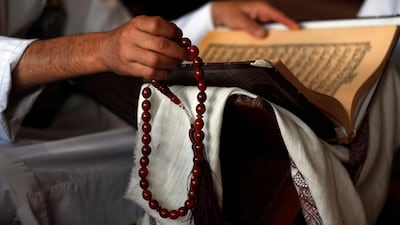The Covid-19 pandemic has affected many facets of life. It has interrupted work, daily routines, gatherings with family and friends and much of the usual hustle and bustle of life. It has also affected matters of death, and how we honour the rights of our departed loved ones in this time.
For Muslim communities of the West, the latter has been particularly challenging, though they have been able to make adjustments accordingly.
Muslim funeral rites are relatively straightforward, and quick compared to many other religious traditions. The departed is washed in accordance with Islamic traditions; prayers are recited over the body, which is then buried. This usually takes place within a day of death.
In a time of pandemic, when the death toll has overtaken the ability of funeral parlours to cope, those parlours in the West which specialise in Muslim funerals have been finding it particularly challenging.
Islamic tradition holds that the sooner the body is laid to rest, the better. Perhaps partly due to the speed called upon in such situations, there haven’t been any serious suggestions in European Muslim communities that funerals be suspended as a result of government directives. Rather, the political authorities in these countries have been clear that funerals may continue, with social distancing measures observed.
If modifications are made to traditional rituals, they are being done in ways that are entirely in keeping with the principles of faith, while also upholding the requirements of public health. Communities of religious leaders, such as the British Board of Scholars and Imams, have gone to great lengths to publicly draw attention to how such rituals can and should continue, even if certain precautions are taken.
Yet there are obstacles in this particular time. Take the ritual of cleansing; many fear that infection could spread to those washing the body, if the deceased died due to coronavirus.
Generally speaking, however, health authorities have said that little risk exists, provided certain precautions are taken. These include wearing protective gear and ensuring that people engaged in ritual washing are properly trained. If so, the full rites can be done.

The British Islamic Medical Association for instance, has called on burial teams to consult with medical personnel with regards to the use of body bags. Considering that British public health authorities have not made it a requirement for coronavirus victims to be sealed in a body bag, this is only prudent.
When it comes to the passing of loved ones, it is not only the custom of shrouding that family and friends are involved in. It is the funeral itself where men and women, young and old, conduct a special prayer, usually in a mosque.
Again, Western Muslim religious authorities, such as Seekers Guidance, have reminded their followers that the current time of social distancing calls for minimums to be upheld, in accordance with the traditions of their religious heritage. This means is best for only a few – even just one person – to pray over the deceased, in all likelihood at the cemetery.

It is perhaps telling of the flexibility of Islamic tradition that it allows for such burials, when a need arises. This has happened in London over recent weeks, where 40 burial plots side by size were built in one operation, and a mass funeral took place.
There have been smaller funerals, certainly. But as of yet, there are no reports of funerals taking place with the bare minimum of one or two people. Muslims are conducting prayers from a distance – including the performance of a specific prayer called the ‘funeral prayer in absentia’, known in Arabic as ‘salat al-janaza ‘ala al-gha’ibin’, which they have done in their homes and elsewhere.
Indeed, recently, when the celebrated Muslim British activist and journalist, Fuad Nahdi, passed away due to Covid-19 – his funeral was livestreamed for hundreds of people who were unable to attend the funeral in person. In their homes, many of them conducted this particular ‘funeral prayer in absentia’.
It is a difficult time for families as they cannot come together with their loved ones in a way that is usual and expected. No doubt, following the raising of restrictions and following of bringing the pandemic under control, there will be memorials a plenty for those who lost their lives during this time.
This is an adjustment but the tradition has many resources within it that are being used to put Muslims at ease, whether they be in majority Muslim societies, or living as minority communities elsewhere. In so doing, they are not doing away with the Islamic tradition at all – rather, they are making the best of it.
Dr HA Hellyer is a professorial fellow of Cambridge Muslim College, UK, and senior scholar at Azzawia Institute, South Africa


